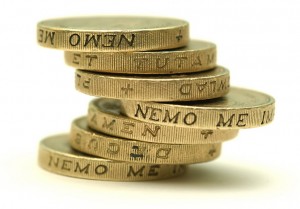Unsecured loans come in different varieties, but they share a common feature, i.e. collateral is not required. Banks consider factors such as creditworthiness, debt to income ratio, income level, payment history, types of credit used, and other factors.
 Banks, credit unions, and finance companies offer auto, personal, and consumer loans. Consumer loans can be used for different purposes, including unexpected expenses or bills, vacations, home improvements and renovations, computers, electronics, and others. Other types of unsecured debt include guarantor and payday loans, term deposits, and medical bills. A guarantor loan, for example, is a form of financing that requires a guarantor. They are usually offered to persons with poor credit or little credit exposure and are considered an alternative to payday lenders. Payday loans are another type of short-term financing to use in emergencies. It is not the best option because some lenders offer outrageous interest rates. Student loans are offered to full-time and part-time students enrolled in universities and colleges. They can choose from different types of financial assistance, including grants, scholarships, and government and private loans. The main benefits for students are affordable interest rates and deferred payments while at school (for government assistance). Auto financing is also offered for new and used vehicles. Borrowers can apply with banks, credit unions, and car dealerships. Some lenders also offer loans for the purchase of RVs, motorcycles, boats, and other vehicles. Car financing comes with beneficial features such as payment deferral, electronic signature, extended terms, and no prepayment penalties. What you need to apply is your recent pay stubs, the vehicle identification number, your ID, and other documents, depending on the financial institution. Certain restrictions may apply.
Banks, credit unions, and finance companies offer auto, personal, and consumer loans. Consumer loans can be used for different purposes, including unexpected expenses or bills, vacations, home improvements and renovations, computers, electronics, and others. Other types of unsecured debt include guarantor and payday loans, term deposits, and medical bills. A guarantor loan, for example, is a form of financing that requires a guarantor. They are usually offered to persons with poor credit or little credit exposure and are considered an alternative to payday lenders. Payday loans are another type of short-term financing to use in emergencies. It is not the best option because some lenders offer outrageous interest rates. Student loans are offered to full-time and part-time students enrolled in universities and colleges. They can choose from different types of financial assistance, including grants, scholarships, and government and private loans. The main benefits for students are affordable interest rates and deferred payments while at school (for government assistance). Auto financing is also offered for new and used vehicles. Borrowers can apply with banks, credit unions, and car dealerships. Some lenders also offer loans for the purchase of RVs, motorcycles, boats, and other vehicles. Car financing comes with beneficial features such as payment deferral, electronic signature, extended terms, and no prepayment penalties. What you need to apply is your recent pay stubs, the vehicle identification number, your ID, and other documents, depending on the financial institution. Certain restrictions may apply.
Banks look at different factors to make a decision, including your cash flow, type of loan you apply for, and credit history. They offer affordable monthly payments and flexible solutions to creditworthy customers. The criteria also vary depending on whether you apply for a personal or business unsecured loan. Obviously, the interest rate is higher because financial institutions take more risk. Banks are willing to offer lower interest rates if you pledge some valuable item as collateral, but this means that you apply for a secured loan. The amount offered is also lower and the term is shorter. The main benefit of short-term loans is that you pay less in interest charges but the monthly payments are higher. The most important consideration for banks is whether you will be able to pay off the loan. They look at your income and debt, including stocks and bonds, certificates of deposit, real estate, and others. Your chances of getting approved increase if you have additional sources of income such as rental income, pension, or alimony. Banks are also interested in your credit mix, i.e. mortgages, credit cards, personal loans, and lines of credit. One of the most important considerations is whether you make timely payments. Borrowers with delinquencies and late payments are considered risky.